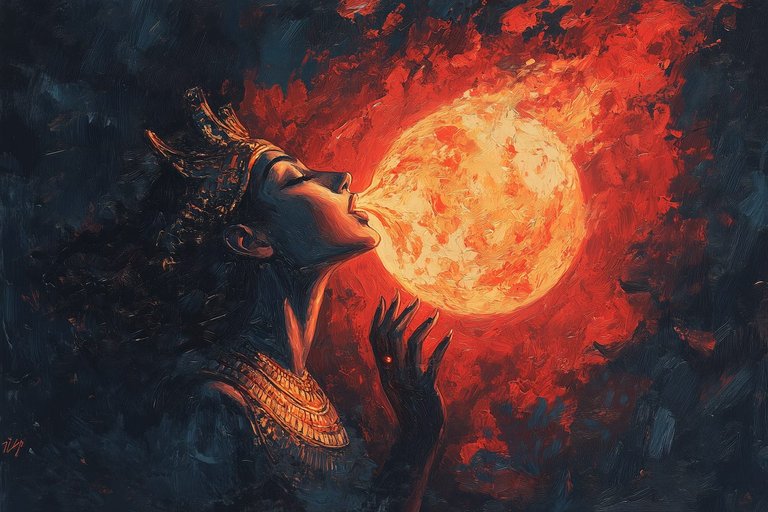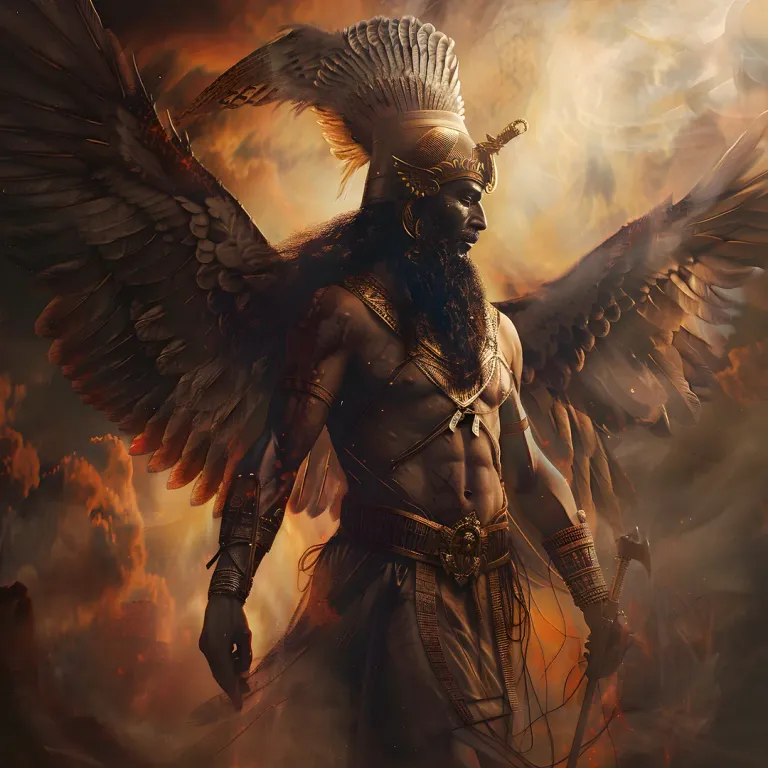The Anunnaki: Ancient Gods, Modern Mysteries – Are We Still Under Their Control?

Are We Still Under Their Control?
For thousands of years, humanity has looked to the stars and asked the ultimate question: Where did we come from? Ancient myths, lost texts, and forbidden knowledge all seem to point to a mysterious race known as the Anunnaki—a group of powerful beings from another world who may have played a hand in our creation... and who might still be here.
Why did they come to Earth in the first place? And what if we're not the only intelligent race inhabiting this planet?
Who Were the Anunnaki?
Anunnaki comes from ancient Sumerian texts—the oldest written language on Earth. According to these records, the Anunnaki were sky beings, gods from the heavens, who came down to Earth with a clear mission. They were not metaphorical deities, but powerful, physical beings who ruled the Sumerian world like kings. Their name means “those who came from the heavens to Earth.”
In texts like the Enuma Elish and The Epic of Gilgamesh, the Anunnaki are depicted as creators, judges, and sometimes cruel overlords. Ancient astronaut theorists suggest these stories aren’t mythology—they're misunderstood historical records. The Enuma Elish and The Epic of Gilgamesh are two of the oldest known texts from ancient Mesopotamia, and both offer intriguing references to the Anunnaki—powerful beings described as divine or god-like. In the Enuma Elish, the Anunnaki are involved in creating the world and humanity, acting under the orders of higher deities, which many interpret as a record of advanced beings shaping early civilization. The Epic of Gilgamesh, meanwhile, includes gods descending from the heavens, granting knowledge, and interacting directly with humanity. These stories, rich in symbolism and cosmic imagery, have sparked theories that the Anunnaki were not just mythological gods but extraterrestrial visitors who played a role in human development.
Through these ancient epics, we glimpse a deeper narrative—one that blurs the line between mythology and the possibility of alien influence in our distant past.
Why Did the Anunnaki Come to Earth?
According to the controversial work of Zecharia Sitchin, who translated the Sumerian tablets in a way that challenges mainstream scholars, the Anunnaki came from a distant planet called Nibiru, part of our solar system but on an elongated orbit. According to ancient Sumerian texts, the Anunnaki created humans after the Igigi, lesser gods, rebelled against the hard labor they were forced to endure. The Atrahasis epic describes how the Igigi grew tired of digging canals and working the earth, leading them to revolt against Enlil. In response, the Anunnaki convened and, under the guidance of Enki and the mother goddess Ninhursag, created humanity as a replacement workforce—fashioned from clay and infused with the essence of a god.
This origin story suggests that humans were engineered for a specific purpose, possibly even as part of a larger extraterrestrial agenda. It adds fuel to the theory that our creation was not purely divine, but technological, designed to serve the needs of powerful beings from the stars.
The Anunnaki needed gold to stabilize their planet’s atmosphere. Earth, rich in gold, became a prime target. But mining it themselves was tedious, so they genetically altered Homo erectus, creating a hybrid: humans—engineered to serve, to dig, to obey. In Sitchin’s version of events, humans were created as a slave species.
Were We Made to Serve?
If you look closer, ancient texts reflect a disturbing pattern. In the Atrahasis epic, there’s a tale of rebellion—not by humans, but by another race: the Igigi, lower-tier gods forced to work the mines for the Anunnaki. In response, the Anunnaki created mankind to replace them. A chilling thought: Are we simply the next in line?
The story of Adapa, often linked with the biblical Adam, offers a surprising look into what we think of as Eden. Far from a blissful paradise, Adapa's “Eden” appears more like a controlled environment—possibly even a laboratory. In the Sumerian texts, Adapa is created by the god Enki and is described as wise but not immortal. He lives in Eridu, a sacred space often associated with the gods' domain, but this place is carefully managed, with strict rules and limited freedom. The term “Eden” comes from the Sumerian Edin, meaning “plain” or “steppe”—not paradise.
Adapa didn’t seem to enjoy divine favor either; when offered the food of immortality by Anu in the heavens, he was told not to eat it, effectively being denied eternal life. This version of Eden feels less like a reward and more like an experiment—one where knowledge was granted, but freedom and immortality were withheld.
The echoes of this origin story are found across the globe: from the Bible’s Adam and Eve to the myths of Mesoamerica. Over and over, we see gods creating humans, often as workers, servants, or subjects. The pattern is too familiar to ignore.
Is There Any Proof the Anunnaki Were Here?
While mainstream science denies definitive evidence of extraterrestrial intervention, several points raise eyebrows:
Sumerian tablets: Too advanced for their time, these records contain astronomical knowledge unknown to later civilizations.
Pyramid alignments: The Giza pyramids and many other ancient structures align perfectly with celestial bodies, suggesting knowledge of space beyond human capability at the time.
Genetic "missing link": There's still a huge gap in our evolutionary timeline. How did Homo sapiens emerge so suddenly?
Out-of-place artifacts (OOPArts): Ancient batteries, precise stone carvings, and references to flying machines across the world imply the presence of advanced technology in antiquity.
Are the Anunnaki Still Here?
The question of whether the Anunnaki are still among us continues to stir curiosity, especially among those who study ancient texts, secret societies, and elite bloodlines. While mainstream history treats the Anunnaki as mythological deities from Sumerian records, some researchers and members of secret societies, such as those tied to Illuminati traditions, believe otherwise. They claim that the bloodlines of the Anunnaki were never lost, but preserved and passed down through generations.
This belief extends into powerful dynasties and ruling classes, with some asserting that royal families, including the British monarchy, trace their lineage back to ancient Egypt and, through Egypt, to the Anunnaki themselves. These elite groups often believe they have a divine right to rule, not merely through politics or heritage, but because of their supposed extraterrestrial ancestry. Whether literal or symbolic, this belief influences how power is understood—and kept—in the modern world, suggesting the legacy of the Anunnaki may still shape human destiny from behind the scenes.
Posted by Waivio guest: @waivio_cosmicsecrets
